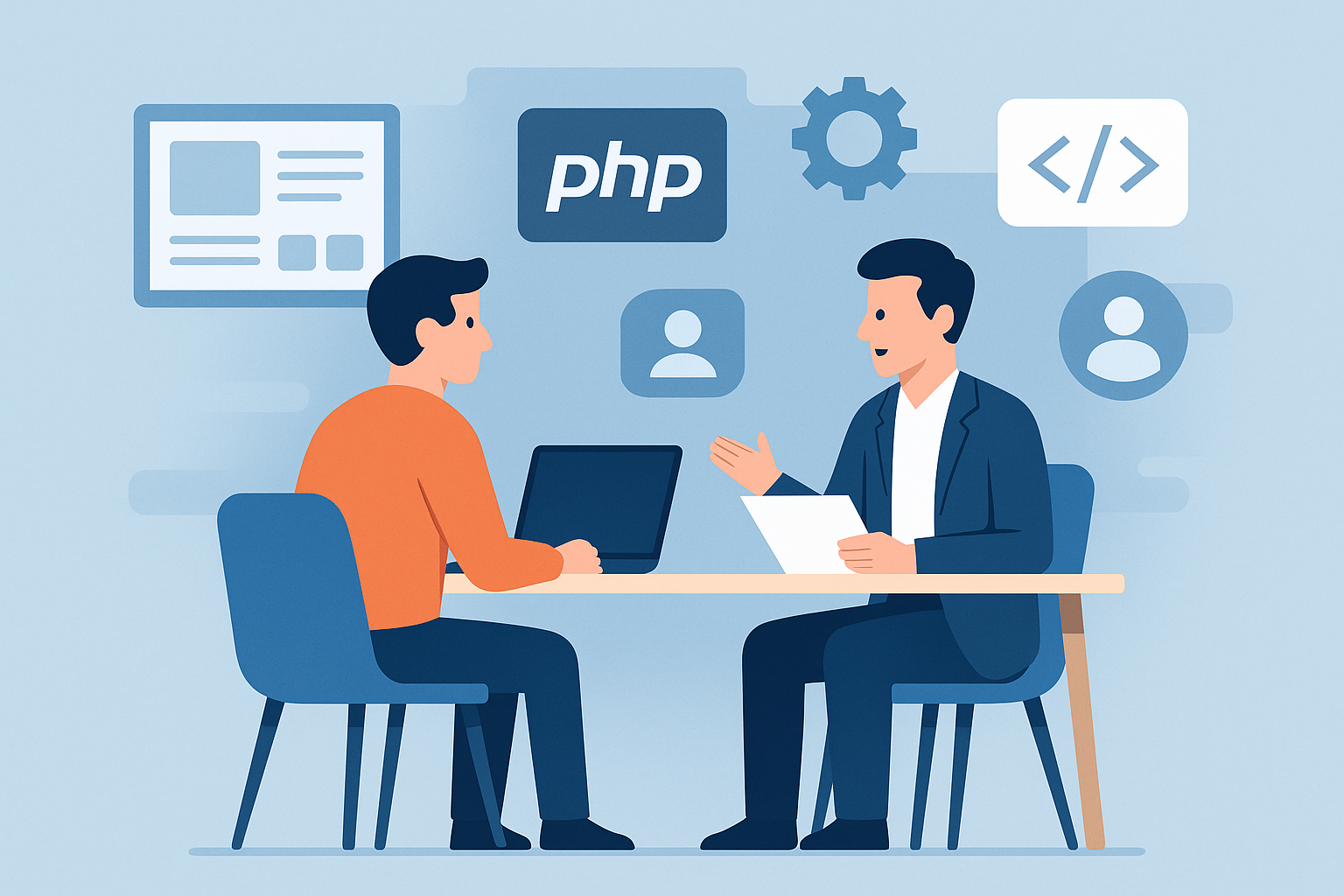Hiring a PHP developer in 2025 isn’t what it used to be. Gone are the days when “knows Laravel” or “can write SQL joins” was enough to get my attention. Over the years, I’ve refined what I look for—and just as importantly, what I don’t care about anymore.
Let me walk you through what matters most to me when hiring PHP devs for my team.
1. Can They Solve Problems or Just Write Code?
PHP syntax can be learned. Frameworks come and go. But problem-solving ability? That’s a deeper skill.
I give a simple, real-world task in the interview—like building a small feature that requires fetching, filtering, and transforming data. I watch how they think through it, not just if they get it “right.” I’m not hiring a StackOverflow replicator—I want someone who can figure stuff out when no one’s watching.
2. Communication > Code Golf
In 2025, most of my team is remote. This means writing clear, concise Slack messages, documenting your decisions, and asking the right questions matters more than shaving milliseconds off a query. If you can’t communicate clearly, you can’t collaborate effectively.
3. I Don’t Care About College Degrees
I stopped asking about degrees years ago. I care about your GitHub contributions, open-source involvement, side projects, and how you explain technical decisions. I’ve seen bootcamp grads outshine CS majors because they hustle and adapt fast.
4. Depth Over Buzzwords
Someone who really knows vanilla PHP with a solid grasp of OOP, closures, dependency injection, and unit testing will always beat the person throwing around “microservices” and “event-driven architecture” without understanding the cost. Don’t try to impress me with a list of acronyms—show me real architectural decisions you’ve made.
5. Test Writing Is a Green Flag
If you talk about how you write tests (unit, integration, or even contract tests), you’re already ahead of 80% of applicants. If you enjoy writing tests? I’ll probably fast-track you.
6. I Ignore Fancy Portfolios With Zero Depth
If your portfolio is full of pixel-perfect templates and not a single meaningful piece of backend logic or data handling—hard pass. I want to see challenges you’ve tackled, not just your ability to follow a YouTube clone tutorial.
7. Red Flags?
- Can’t explain the trade-offs between Eloquent and raw queries.
- Doesn’t know what PSR-4 is.
- Thinks async = faster (without understanding context).
- Avoids talking about bugs they’ve caused (we all have, let’s be honest).
8. I Ask About Team Fit
I’ll ask how they handle feedback. I’ll ask what they do when they disagree with code decisions. I care about how you interact with your teammates just as much as your code style.
9. Future-Ready Skills I’m Starting to Prioritize
- Experience with serverless PHP (e.g., Bref)
- API-first design
- Integration with modern frontend stacks (Vue, Alpine, HTMX)
- CI/CD pipelines and Docker fluency
None of these are must-haves—but if you’re familiar with even one, that’s a strong bonus in 2025.
Final Thoughts
Hiring well is less about checking boxes and more about seeing how someone will grow within your team. The best devs I’ve hired weren’t always the most polished at the start. They were the ones who cared, communicated, and kept learning.
And that’s what I’ll keep looking for—this year and beyond.
